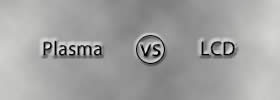Difference between Good and Bad Fats
Key Difference: Good fats are basically fats that are required by the body, while bad fats are fats that are not so important and can be cut from the diet. However, one should not assume that good fats are good in great quantities. In reality, almost everything depends on the quantity of intake and the amount that is expended in the form of energy. Fats that are responsible for raising the LDL are known as bad fats, these are mostly man made fats. The most common man made fats are known as trans fats. Good fats or unsaturated fats such as ones derived from plants and sea foods, etc. are good for the body and help increase the HDL cholesterol carrier levels.
 Fats have become associated with being fat, ah go-figure; but names aren’t the only thing that matter. Fats are an important part of the body and are required by the body for sustenance. Certain functions require fats, such as energy for the body to function, absorption of certain vitamins, etc. Fats are an important part of our diets, but due to the media putting blame on all kinds of fats that are making people gain weight, many people are cutting fats from their diet. These include good fats. That’s right. There are two kinds of fats: Good fat and Bad fat. Both of these perform different functions inside the body. First let’s understand what fats are exactly.
Fats have become associated with being fat, ah go-figure; but names aren’t the only thing that matter. Fats are an important part of the body and are required by the body for sustenance. Certain functions require fats, such as energy for the body to function, absorption of certain vitamins, etc. Fats are an important part of our diets, but due to the media putting blame on all kinds of fats that are making people gain weight, many people are cutting fats from their diet. These include good fats. That’s right. There are two kinds of fats: Good fat and Bad fat. Both of these perform different functions inside the body. First let’s understand what fats are exactly.
Fats are a sub-group of lipids and are known as triglycerides. Fats are the fatty acid esters of glycerol and are the primary energy depots of animals. The energy depots are used for storing energy that may be required by the body during deprivation of food. Fats play an important part in chemical and metabolic functions. According to author Bonnie Taub-Dix, “Vitamins such as A, D, E, and K are called fat-soluble because they need to bind to fat to be absorbed. If fat isn't available, the vitamins can't be absorbed properly.”
Fats are broken down in a human body by enzymes called lipases, which are produced in the pancreas. Human bodies also have an adipose tissue, which is known as a fat depot and is a loose connective tissue composed of adipocytes. This tissue is compose of roughly 80% fat and is located beneath the skin, around internal organs, in bone marrow and in breast tissue. The main role of this tissue is to store energy in the form of lipids. An excess of this tissue causes obesity in humans.
Fats can be categorized into saturated fats and unsaturated fats. Unsaturated fat can be further divided into cis fats and trans fats. Edible fats include lard, fish oil, butter/ghee, whale blubber, peanut, soya bean, sunflower, sesame, coconut and olive oils, and cocoa butter, and margarine. These fats are healthy in a certain limit, but excess of these can cause a person to have too much fat and become obese.

Fats and other works provide calories, which works as energy in order to run our bodies. If there was no energy in the body, a person would not be able to perform daily functions. Hence, fats in small amount are beneficial for the body. However, an excess of fatty foods can cause a person to become obese and will negatively affect the body by blocking arteries, etc. So a person should intake calories and fats depending on their lifestyle, such as active lifestyles require more calories, while non-active lifestyles require less calories and fats.
Good fats are basically fats that are required by the body, while bad fats are fats that are not so important and can be cut from the diet. However, one should not assume that good fats are good in great quantities. In reality, almost everything depends on the quantity of intake and the amount that is expended in the form of energy. Good fats and bad fats when taken in small quantities are quite beneficial, but when they eaten in large quantities, it becomes into an energy deposit for later use, which turns into the fat we know that makes us obese. Even foods that claim to be low fat can cause a person to become obese or create medical problems as the manufacturers simply replace the fat in the foods with sugar. Sugar spikes blood levels and results in creating more energy deposits when sugar is absorbed.
Fats that are responsible for raising the LDL are known as bad fats, these are mostly man made fats. The most common man made fats are known as trans fats and saturated fats. These raise the amount of LDL cholesterol carriers in the body, resulting in more cholesterol getting deposited in veins and arteries. Good fats or unsaturated fats such as ones derived from plants and sea foods, etc. are good for the body and help increase the HDL cholesterol carrier levels, resulting in more cholesterol getting to the liver for disposal. However, with all fats, it is best to watch quantities. Every fat should also be consumed in small quantities.
Image Courtesy: womensdietnetwork.com, quickweightlosschannel.com









Add new comment